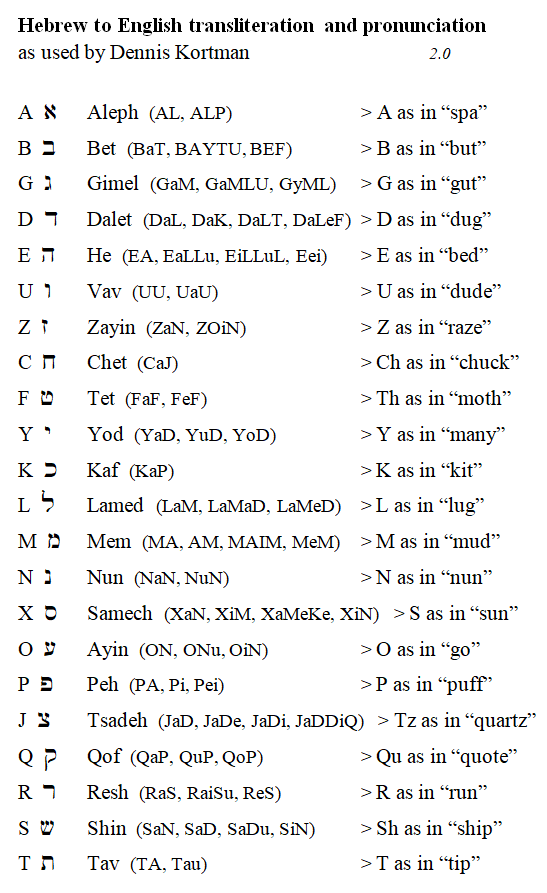
This is the Hebrew to English transliteration and pronunciation that I have developed and/or compiled and am currently using.
Some possible notable differences from what is commonly used by Biblical scholars:
Transliteration
- E for Heh
- C for Chet
- F for Tet
- X for Samech
- O for Ayin
- J for Tsadeh
Pronunciation
I believe ancient Hebrew did have vowels and therefore I pronounce them as such:
- “Aleph” is the “A” vowel pronounced as the A in “spa”
- “He” is the “E” vowel pronounced as the E in “bed”
- “Vav” is the “U” vowel pronounced as the U in “dude”
- “Yod” is the “I” vowel pronounced as the Y in “many”
- “Ayin” is the “O” vowel pronounced as the O in “go”
This view is certainly in the minority but does have some supporters. It is perhaps most famously supported by Josephus (Flavius Yusef) when he stated in his “War of the Yahudim” book 5, chapter 5: “ A mitre also of fine linen encompassed his head, which was tied by a blue ribbon, about which there was another golden crown, in which was engraven the sacred name – it consists of four vowels.”